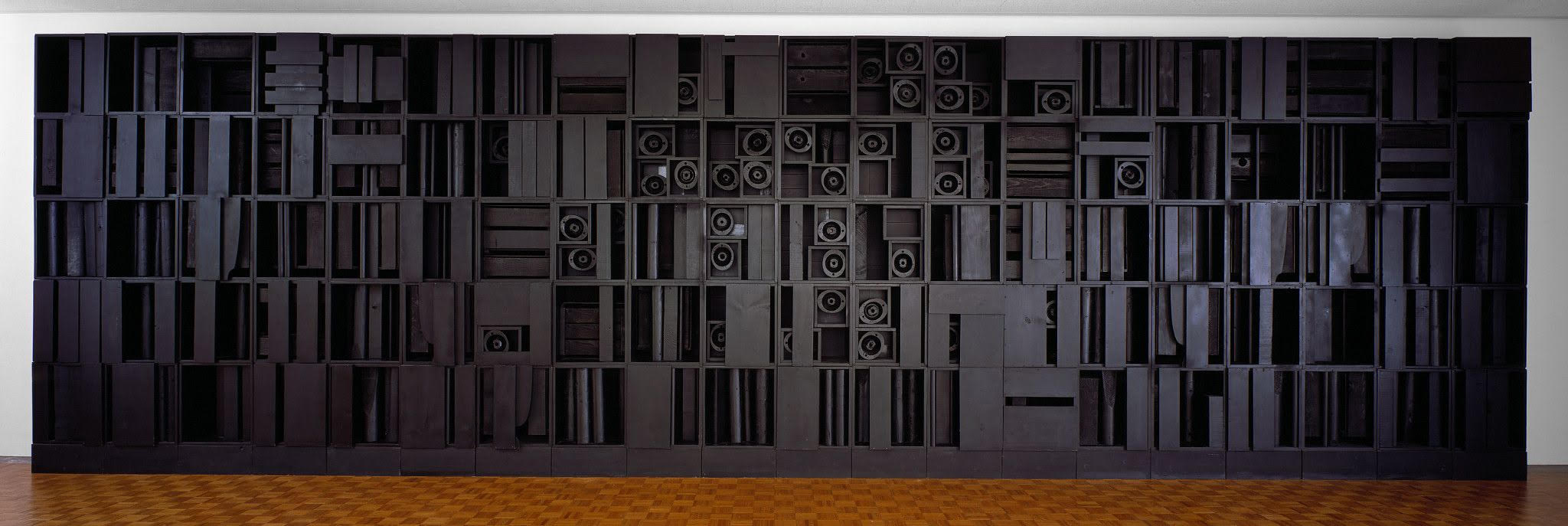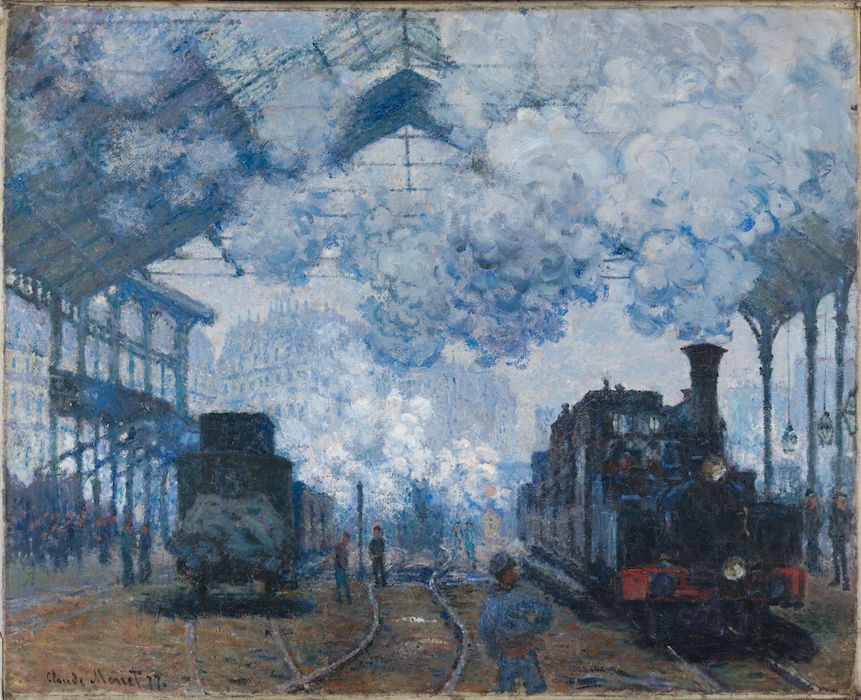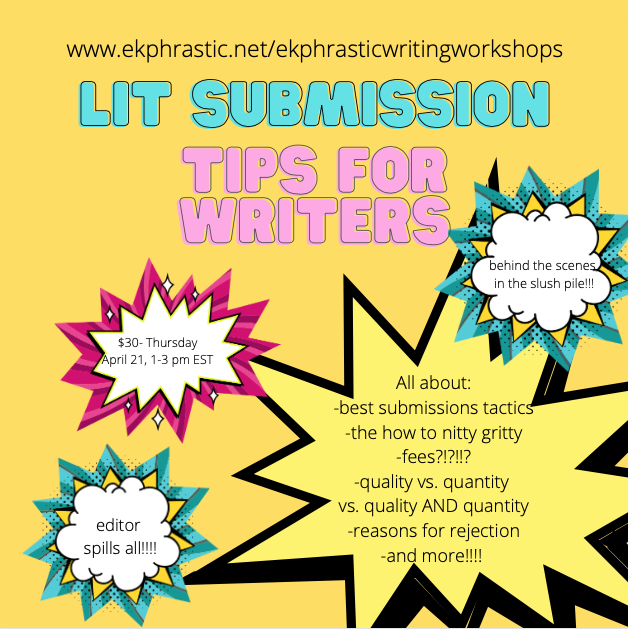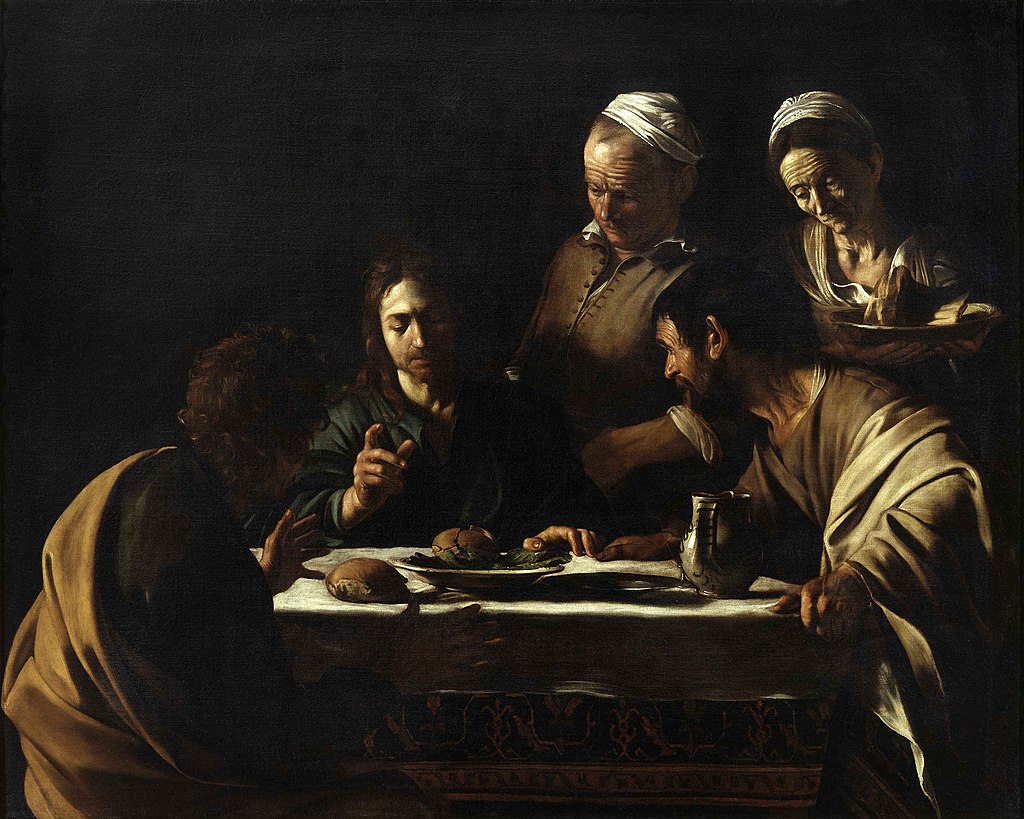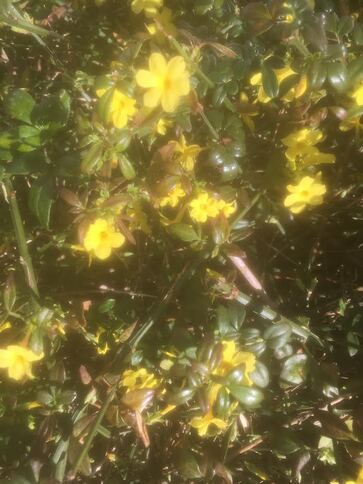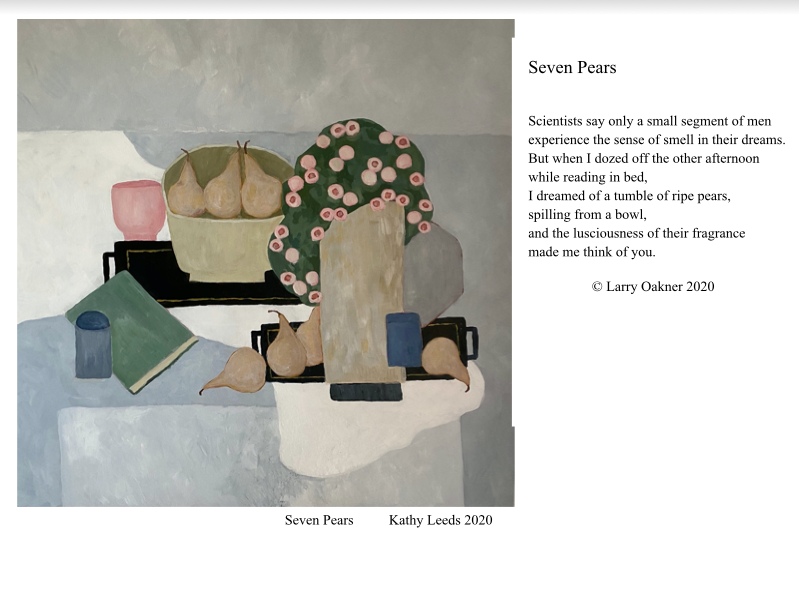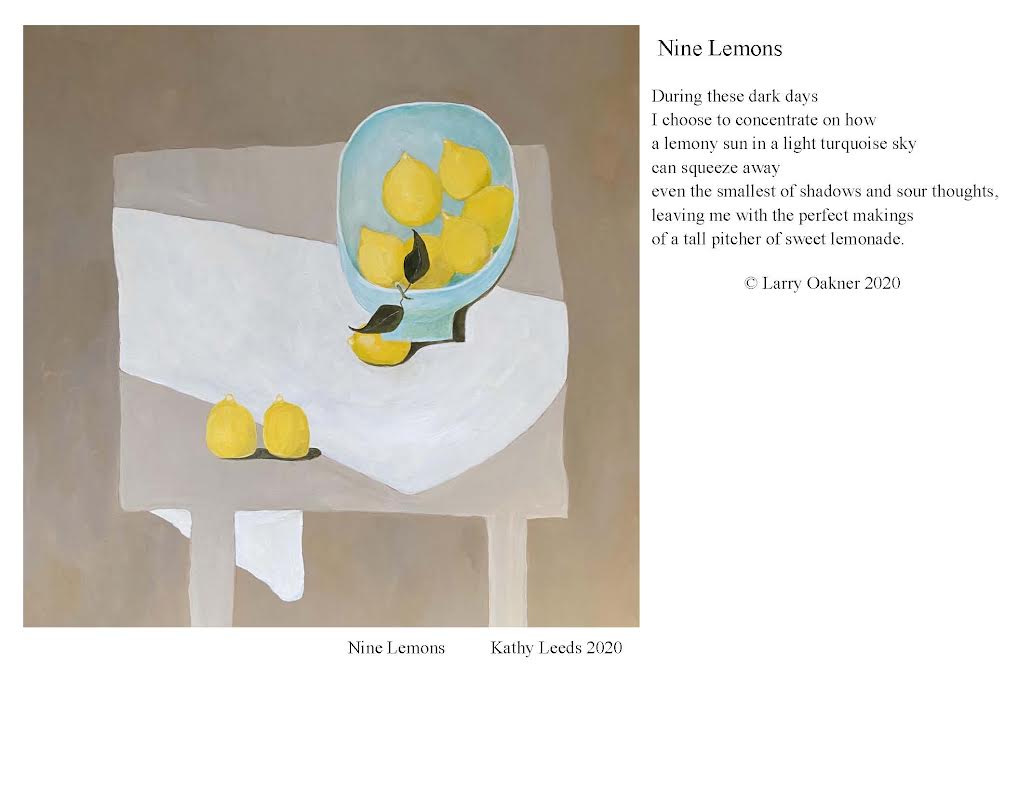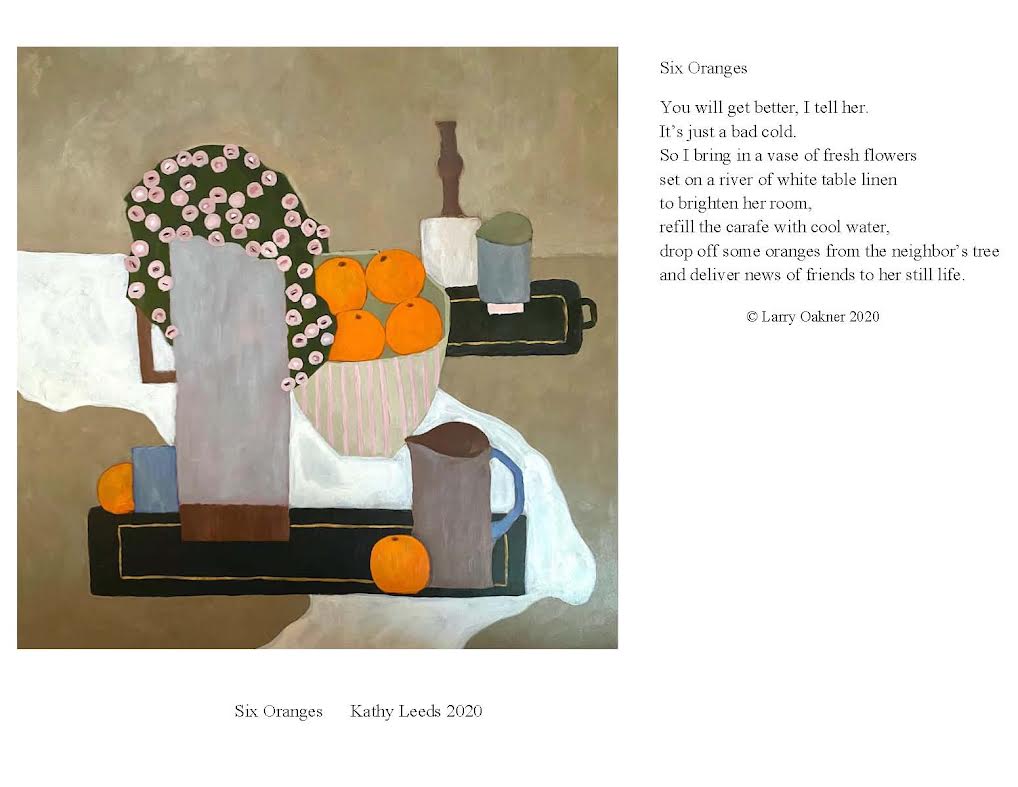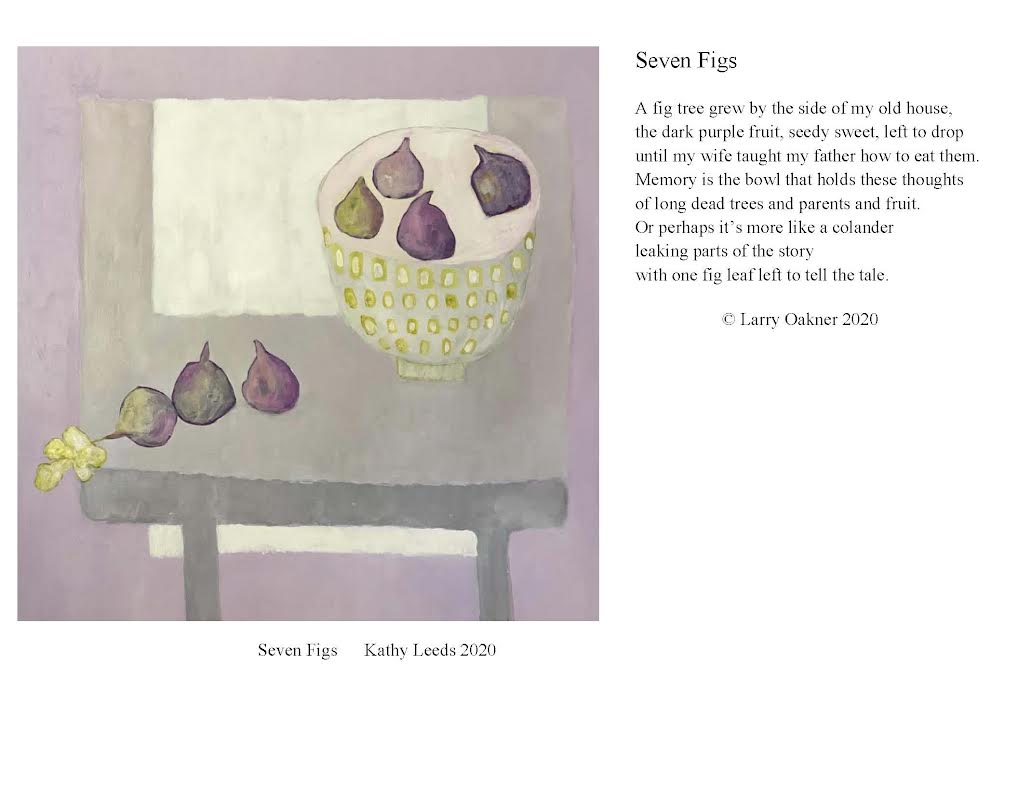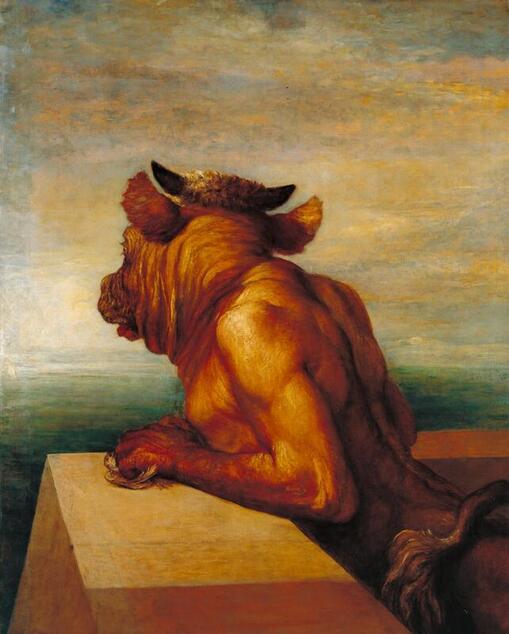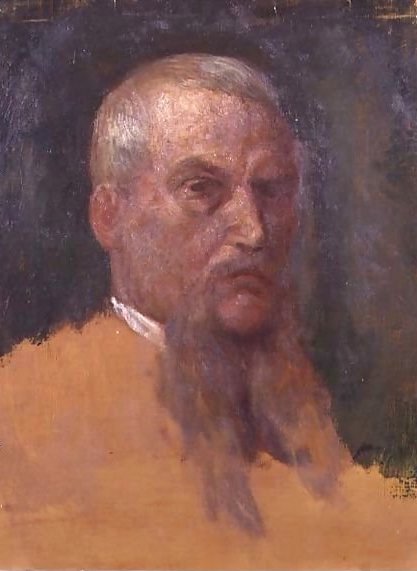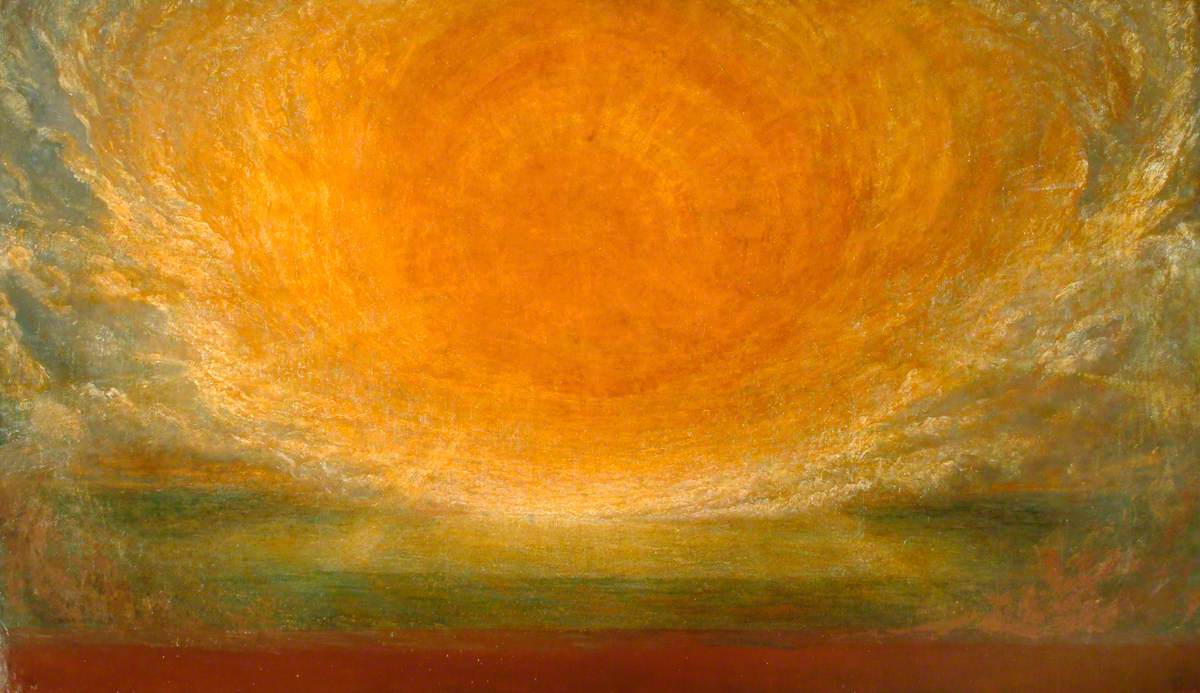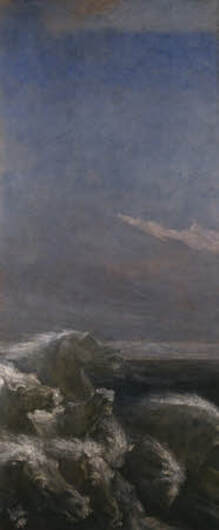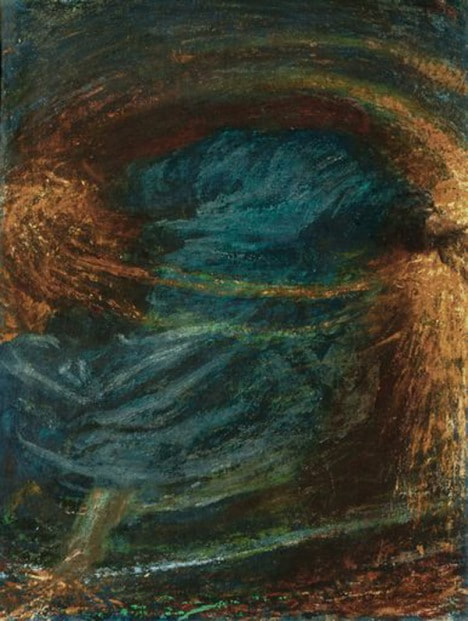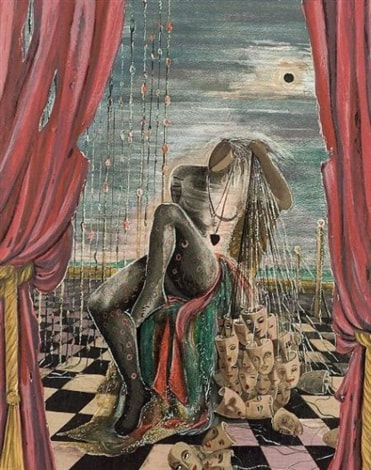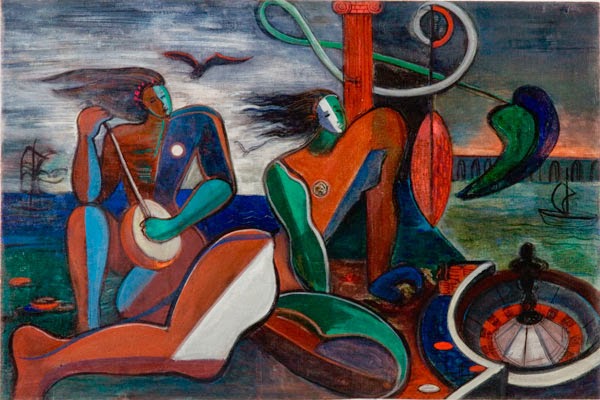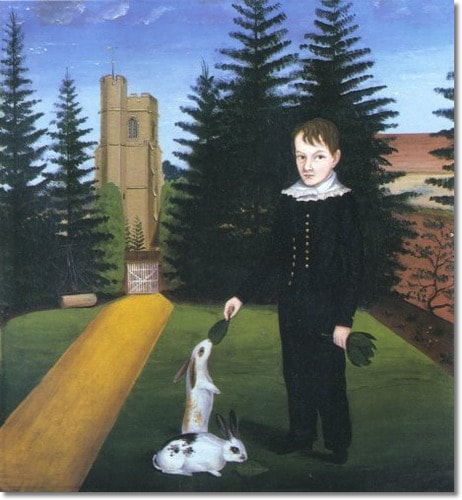|
An Unholy Alchemy of Colour
John Paul Caponigro John Paul Caponigro is an internationally collected visual artist and published author. He leads unique adventures in the wildest places on earth to help participants creatively make deeper connections with nature and themselves. View his TEDx and Google talks at johnpaulcaponigro.com.
0 Comments
Greek: Impressio Μνήμη Θέμου Αυγερινού Για να δούμε, πρέπει να ξεχάσουμε το όνομα του αντικειμένου που κοιτάμε. Claude Monet Το πρωί, ο Claude Monet ξυπνούσε γυμνός, με τα μάτια του γεμάτα νερό γιατί η νύχτα τον ευλογούσε πάντα με λήθη για τα ονόματα των πραγμάτων. Στη Gare Saint-Lazare, ο καπνός των ατμομηχανών γαλαζώνονταν, κινούνταν με τη βραδύτητα την άνθισης προς την καρποφορία του στερεού· ή ίσως, οι αρχαίες πέτρες του Παρισιού εξαϋλώνονταν στα όνειρα ενοίκων, για στοές εμπορικές, μαγικά αντικείμενα απ’ τις αποικίες, για το Le Bon Marché και τα τμήματα της επιθυμίας σε κάθε όροφο του ύπνου. Ο καπνός αυτός ήταν μια σκέψη του κτιρίου· το κτίριο μια συνεπαγωγή του καπνού. Και η εντύπωση ήταν προσωρινή και ήταν μόνιμη, η μονιμότητα του προσωρινού, το πράγμα στη διαδικασία απώλειας του δέρματος του ονόματος, το χρώμα στο υποκειμενικό του μεγαλείο, όλα να στροβιλίζονται αδιάκριτα γύρω απ’ όλα, ατελή, μετασχηματιζόμενα, κι ο Claude Monet γυμνός, με τα μάτια γεμάτα νερό, με το πινέλο στο χέρι, που ήδη δεν ήταν πινέλο, ήταν μόνο τα δάχτυλά του γαλάζια και φευγαλέα, ήταν μόνο τα δάχτυλά του καπνός, κι ο ίδιος αυτός, ο πάντα αόρατος στο κάδρο. ** Impressio “To see, we must forget the name of the thing we’re looking at”. Claude Monet At dawn, Claude Monet awoke naked, his eyes watery because the night always blessed him with oblivion regarding the names of things. In the Gare Saint-Lazare, the smoke of the steam engines turned blue, moved with the slowness of blooming toward the fruition of the solid; or perhaps, the ancient stones of Paris were liquified into the dreams of the tenants on arcades, on magical objects from the colonies, on Le Bon Marché and the departments of desire in every floor of sleep. This smoke was a thought of the building; the building a consequence of smoke. And the impression was transient and it was permanent, the permanence of the transient, the thing in the process of losing the skin of the name, color in its subjective splendor, everything swirling indiscriminately around everything, imperfect, transformable, and Claude Monet naked, his eyes watery, in his hand his brush, which already was not a brush, it was just his fingers, blue and fleeting, it was only his hands in smoke, and he himself, always invisible in the frame. Antonis Balasopoulos Antonis Balasopoulos was born in Thessaloniki, Greece in 1970 and is Associate Professor of Comparative Literature at the University of Cyprus. He has published two volumes of creative prose and aphorisms (Through the Loophole and The Book of Brief Reflections), three poetry collections (Multiplicities of Zero, White on White and The Book of Creatures) and a collection of short fiction (The Cube and Other Stories), all in Greek. He has also translated Emily Dickinson, Robert Frost, Wallace Stevens, W.B. Yeats, Louise Glück and Ezra Pound. His poetry, fiction and translations have been published in several printed and online periodicals in Greece, Cyprus and the UK. Without Meaning To Christ’s finger, raised as if He meant to stress a point of argument, might be aimed at us. An accusation, perhaps. This is after the painter, without meaning to, had killed Ranuccio, which might account for the more sorrowful tenor of this version. Maybe, in fact, that could be guilt on Christ’s countenance, and not pity for those he’ll leave again. Who’s being accused, and of what? Guilt can be so relative. ** Ruin See how the hands of the man who leans in towards Christ cling fast to the table as if he knows already what’s to come and needs the certainty of the wood. Ironic, as it was wood Christ found himself nailed to, hung up to evince suffering for all to see. Often it’s what we hold on to that ruins us. Often we can’t let it go, even as we can’t help but notice everything beginning to fall apart. ** Illumination What must it have been like to realize god had not died on a miserable stalk of wood staked into the ghastly earth of a stark hill that had been named after a skull. For this truth to have been revealed by the breaking of bread with crust so dry it sounded almost like a bone being pierced with a spike. So much of what we love can be illuminated by being connected to some kind of suffering. ** Still Enough Though the bread is breaking, Christ hasn’t yet broken anything, and so hasn’t been revealed as the god who had been broken on that tormented spectre of a tree just days before, the figure Cleophas and the other had told him stories of as they walked together to Emmaus. This is the moment the miraculous is still to come, and the mundane is still enough to tell us all we need to know. ** Of Miracles We Are How much is forgiven by the darkness that surrounds us whatever light we find ourselves in? Can it be enough to talk into the night no matter how tired we are, telling of miracles we are desperate to believe might mean something more is always just about to happen to make sense of it all? Is there enough water to wash us clean of sin, or wine enough to rinse out every rancid taste? George Looney These poems are part of a manuscript of ekphrastic poems based on paintings by Caravaggio. In the manuscript, there are five poems on each painting, each poem being ten lines long with each line having exactly ten syllables. George Looney: "My books include the just-released Ode to the Earth in Translation (Red Mountain Press), a collection of stories, The Worst May Be Over, which won the Elixir Press Fiction Award, The Itinerate Circus: New and Selected Poems 1995-2020 (Red Mountain Press), the Red Mountain Press Poetry Award-winning What Light Becomes: The Turner Variations, the novel Report from a Place of Burning which was co-winner of The Leapfrog Press Fiction Award, Hermits in Our Own Flesh: The Epistles of an Anonymous Monk (Oloris Publishing, 2016), Meditations Before the Windows Fail (Lost Horse Press, 2015), the book-length poemStructures the Wind Sings Through (Full/Crescent Press, 2014), Monks Beginning to Waltz (Truman State University Press, 2012), A Short Bestiary of Love and Madness (Stephen F. Austin State University Press, 2011), Open Between Us (Turning Point, 2010), The Precarious Rhetoric of Angels (2005 White Pine Press Poetry Prize), Attendant Ghosts (Cleveland State University Press, 2000),Animals Housed in the Pleasure of Flesh (1995 Bluestem Award), and the 2008 Hymn of Ash (the 2007 Elixir Press Fiction Chapbook Award). I am the founder of the BFA in Creative Writing Program at Penn State Erie, editor-in-chief of the international literary journal Lake Effect, translation editor of Mid-American Review, and co-founder of the original Chautauqua Writers’ Festival. Yellow Joy - Tanka few things lift spirits quite like the sunny splashes of winter jasmine’s defiant little flowers laughing at a bleak season Stephen Poole Stephen Poole served for 31 years in the Metropolitan Police in London, England. As a freelance journalist, his work has been published in a variety of British county and national magazines. Passionate about poetry since boyhood, his poems have appeared in The Ekphrastic Review, Poetry on the Lake, LPP Magazine, and two anthologies. Larry Oakner is the author of several books of poems, including SEX LOVE RELIGION (Blind Tattoo Press) and The Canticles of Private Lucius Swan, (Pen & Anvil Press). His poems have appeared recently in Red Eft Review, WINK, The Oddville Press, and many other journals.
Kathy Leeds created a series of paintings during the first months of lockdown in 2020. She flattened and abstracted objects that had a deep personal history to create a visual vocabulary of magical still life spaces. Her work has appeared in numerous shows, including Art Basel Miami and private collections. Tantalising Flame: a Sequence of Five Poems After George Frederick Watts, by Richard Lister4/16/2022 My Tale You can hardly see my face. Few do. In the labyrinth light gutters, sound is all. Pattering of rat and screech, the unmarked descent of dust. Notice my shoulder muscles: strength that binds me, the one gift from my one-time father, Cretan bull. Somewhere in me is my mother’s, human, tale. I'll greet my … guests, seven youths and seven maids: Athens' tribute to our triumphant Crete. I am too ruddy for a man, hooves set me apart but look beyond the folds of wrinkled skin you'll find my eye teetering with light, and fragile lashes. When the vigour grasps me I am not safe, I crushed the sparrow's spine. Don’t we all have faces best left unseen? Will this new boat bring fear tattooed as hate, charms sealed with spells, warriors who'd rather stab than sit, burn me with fire, than listen to my tale: begat, forgot, imprisoned, real? Unfinished [Oxford 1840] You object to my moustache? Too long and hirsute for you, you hairless runt. So bricky now, sloshed and scammered, you’ll sober up at dawn facing the steel of my pistol. Lead will make you squeal. [Kensington 1880] We must appeal, the suffrage law’s not just. We’re half blind without women’s sight. Those who obey the law have every right to choose those who make the law. They’ll listen to your petition. Or gob on it. You’re a dreamer, Watts. Stick to your paints and keep your woman in hand. See this scar. Somali javelin through my face. Men need to lead, rein her in! What now? Come back you fool! Sir Richard Burton, half blocked in. His head: a cannon ball, textured by paler flecks. Eyes shaded, mouth strong but sour, moustache trailing. I could not stand his company. Unfinished. After the Deluge Spit and ashes smut and cinders steam thumps toddler crashes gin blackened eye pallid rashes laundry tangles facing women piston scalded bitten gnawed and mangled men cravated squeezing wrenching grasping shank and chain flood cleanses deluge drips sun climbs beauty settled rich as butter mists dispersed people vanished. Neptune's Horses The wind tricked us. We, who as ocean, stretched from tropic to pack ice, surface to light-abandoned gloom. She spoke of things we had not drunk or touched or smelt, curdled us until we rose and surged towards the east. The seafloor climbed, imperceptibly at first, but now at pace we’re squeezed until we cannot keep our space but curl, twist and breathe, snort, stare and thunder down our hooves, crushed into a corner by the sky, we pitch and thrash and hurl our spray to drown the beach and claim it ours but - fall, slip and sink into the salt-drenched sand. Let There Be Lights God is moving fast. Striding through tunnels of firmament like a coal-miner setting charges of dynamite. Living brave as sparks scratch at methane, tantalising flame. His robe flares with moonlight, scything off galaxies in curls. Watts has shattered the Sistine Chapel with its coiffured God and self-absorbed Adam, hardly bothered to receive life. Watts' divine has a pulse and a pace. A day's not long to crack the void and scatter stars. The artist, a master of faces, the holy and the myth, frees his brush to paint the unpaintable, the great vesture into which everything that exists is woven. Thus he casts seeds for Kandinsky's symbols, Vorticism's lines of speed, Hodgkin's celebrations of the stroke, and faith and doubt and room for both. Richard Lister Richard draws you into the stories of intriguing paintings, people and cultures. His poetry is ‘a celebration of ordinary magic perceived by a keen eye’, is ‘rich in allusions and textual layers’ and is characterised ‘by a painterly touch’. Richard’s work has been carved into the Radius Sculpture, displayed at the Watts Gallery and in The Fading of the Light Exhibition and published in a wide range of international, national and local collections. He is currently working towards a collection called ‘The Edge’ which explores cultural, relationship and artistic boundaries. Richard is a Mole Valley Poet. He works as a coach and mentor for leaders across Asia, Africa and the UK. 'He certainly knows how to deliver a poem with body, soul and mind'. Lightning Field after The Lightning Field, by Walter de Maria (New Mexico) 1977 It’s death outside but each passing headlight is a howl through the canyons. The universe makes a thousand copies of everything: flat scrub grass, sawtooth mountains paper bag bush and the desert woolly star. Reminds me of leaving the office, the mirage of one last coworker headed to his car in the violet after hours, in the way out there, a blemish on the face of the moon. Here I have my little life, entering numbers into a spreadsheet, boundless scrolling through the twinkling, untilled field, so the cells can conduct electricity and a flash of people kissing, chatting, staying up at night can pass through the air. Out there, only metal can pierce the sky without dying, which I guess really means that only objects may receive a violence so vast as to be beautiful. Hua Xi A version of this poem first appeared in Boulevard. Hua Xi is a writer and artist and occasional art critic. Their work has appeared in American Poetry Review, The Nation and Boston Review. They love the sky. Twitter/Insta: @huaxixyz Or Weren’t We Always Told To Remove Our Makeup at Night? On certain evenings when the sun turns ebony, my heart becomes an obsidian pendant hanging between my breasts, conjuring old lovers’ touch, my newborn’s avid lips. I can then freely perform, peeling off face after face the masks that haunted me all my life, each dangling from a strand of my greying hair, caught within a self-woven web of conflicting feelings brimming with sap and dew. I become a puppeteer pulling threads of time, braiding throbbing heartbeats with the stillness of empty silences. That’s when I realize how much care was taken in recreating myself as though with stage makeup. Or else how could I have coped with the different roles allotted to me at every crossroad, each gilded with a false sense of free will? Hedy Habra This poem was first published by MockingHeart Review. Or How Could We Ever Be Able to Resist Such Likeness? Now we look like a stencil copy as though divided via parthenogenesis or were aphids avid to reproduce ourselves we no longer face each other yet strum in unison the chords of our ukulele stretch our legs sideways in the same comforting position as though we’d lived together for so long we’d slide under each other’s skin can’t get over that older man who told the younger me that touching one’s spouse was the same as touching oneself and yet what’s more magical than touching another skin and now that we are finally together on that wooden raft about to sail as though seated within a dream daydreaming of sailing on yet another boat on each side of that cerulean horizon as though a fragile skiff was hovering awaiting to colour our reel and carry us away I wonder why the need for illusions if we know the emptiness of words we might as well have concocted our stories time after time yet still stumble over the same shadow unlike animals who never fall twice into the same trap our dulled senses might not be able to resist such likeness our hair flowing in the breeze in feathery brushstrokes I feel that you are my mirror image and no longer like what I see. Hedy Habra The poem was first published by Peacock Journal. Hedy Habra is a poet, artist and essayist. She is the author of three poetry collections from Press 53, most recently, The Taste of the Earth (2019), Winner of the Silver Nautilus Book Award and Honorable Mention for the Eric Hoffer Book Award; Tea in Heliopolis Winner of the Best Book Award and Under Brushstrokes, which was a Finalist for the Best Book Award and the International Book Award. Her story collection, Flying Carpets, won the Arab American Book Award’s Honorable Mention and was Finalist for the Eric Hoffer Award. A seventeen-time nominee for the Pushcart Prize and Best of the net, and recipient of the Nazim Hikmet Award, her multilingual work appears in numerous journals and anthologies. https://www.hedyhabra.com/ The new ekphrastic challenge prompt is up. Click on over for the details. New in these pages? We have a bimonthly challenge, where our readers and writers write poetry and flash to an art prompt. Two weeks. Free. Fun. Join us! Click on image above for instructions.
|
The Ekphrastic Review
COOKIES/PRIVACY
This site uses cookies to deliver your best navigation experience this time and next. Continuing here means you consent to cookies. Thank you. Join us on Facebook:
Tickled Pink Contest
April 2024
|
